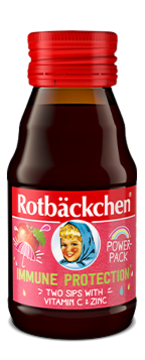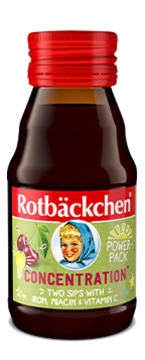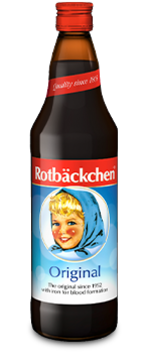Biotin
Biotin, also called vitamin B7 or vitamin H, is known by nutritionists to support strong hair and beautiful skin. This water-soluble vitamin should be included in a varied diet because, like all B vitamins, it plays an important role in many metabolic processes in your body.
Table of Contents:
What effects does biotin have on the body?
You have probably seen biotin in drugstores or cosmetic boutiques. Biotin belongs to the vitamin B complex and like most members of this group, it has all-round benefits:
- Biotin supports the energy metabolism
- Biotin helps with macronutrient metabolism, i.e. with utilizing fats, carbohydrates and protein
- Biotin supports the nervous system
- Biotin helps maintain normal mental function
- Biotin plays a role in maintaining the mucous membranes
Biotin is also known for its supporting role in maintaining skin and hair. The older name "vitamin H" refers to this connection to skin and hair.
Foods that contain biotin
![[Translate to Englisch:] Mutter und Kleinkind backen mit Weizenmehl in der Küche Mutter und Kleinkind backen in der Küche](https://www.rotbaeckchen.de/fileadmin/_processed_/8/5/csm_rotbaeckchen-biotin-01_b0447aa48d.jpg)
Biotin is a water-soluble vitamin your body cannot store. To ensure biotin is effective, the body must therefore regularly absorb a certain amount of it. You can cover your daily biotin requirements easily with a varied and balanced diet because many foods contain biotin – especially these B7 bombs:
| Food | Biotin per 100 g |
|---|---|
| Wheat bran | 44 µg |
| Pork liver | 27 µg |
| Eggs | 25 µg |
| Oatmeal | 20 µg |
| Spinach | 6.9 µg |
| Peas | 5.3 µg |
| Whole milk | 3.5 µg |
Average values according to Souci, Fachmann, Kraut: Food Composition and Nutrition Tables (7th ed.). Munich: C.H. Beck. 2008

Daily biotin requirements
No conclusive scientific evidence says exactly how much biotin is the optimal amount for the body and the functions associated with it. The DGE (German Society for Nutrition) has therefore set an estimated value to standardize the daily dose for adults (here, youths 15 and above are included).
For children, the daily biotin requirement is slightly lower. As a general rule, the more energy you consume, the more biotin you require. Consider the following reference values:
| Age | Biotin µg/day |
|---|---|
| Children between 1 and 4 years | 20 µg |
| Children between 4 and 6 years | 25 µg |
| Children between 7 and 9 years | 25 µg |
| Children between 10 and 12 years | 35 µg |
| Youths between 13 and 14 years | 35 µg |
| Adults 15 and above | 40 µg |
| Pregnant women | 40 µg |
| Breastfeeding women | 45 µg |
Not too many raw eggs!
Preventing biotin deficiency: It is unlikely your body is not supplied with enough biotin through food and that biotin deficiency will occur.
Usually, this only happens after an illness or a very unbalanced diet. So, make sure you eat a balanced and varied diet that includes food with high biotin content.
However, be careful with raw eggs: Although cooked eggs contain a lot of biotin, avidin in raw egg-whites can bind biotin and prevent the body from absorbing it. However, eating too many raw eggs is unusual and unlikely.
More about vitamins & co.

Vitamins & minerals
Want to know what all the valuable micronutrients do, what foods have them and how much you need? Find more information here.
Find out more
Niacin
Niacin is probably better known as vitamin B3. It has many functions but is especially known for helping maintaining healthy mucous membranes and healthy skin – after all, it is our largest organ.
Find out more
Vitamin B
The different members of the vitamin B complex perform different tasks – they take care of energy balance, the nervous system and many other processes in the body.
Find out more


